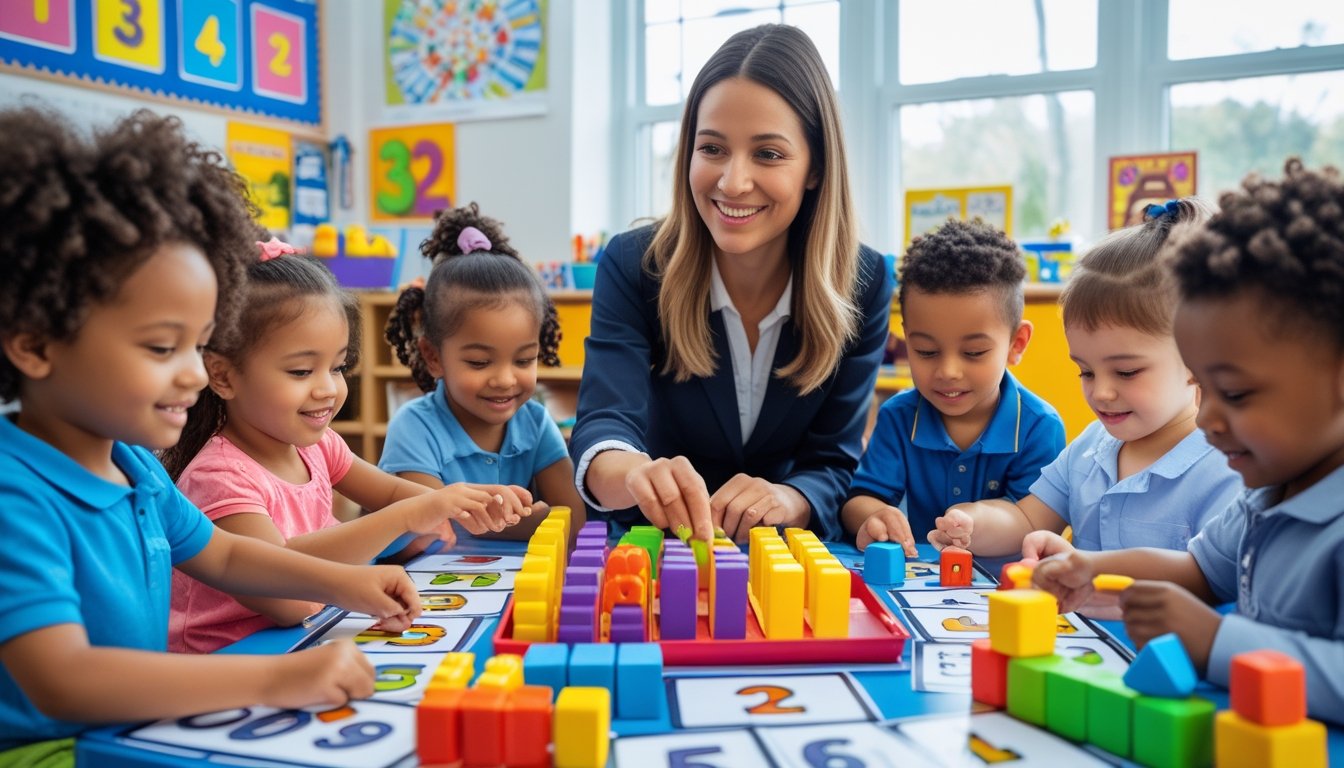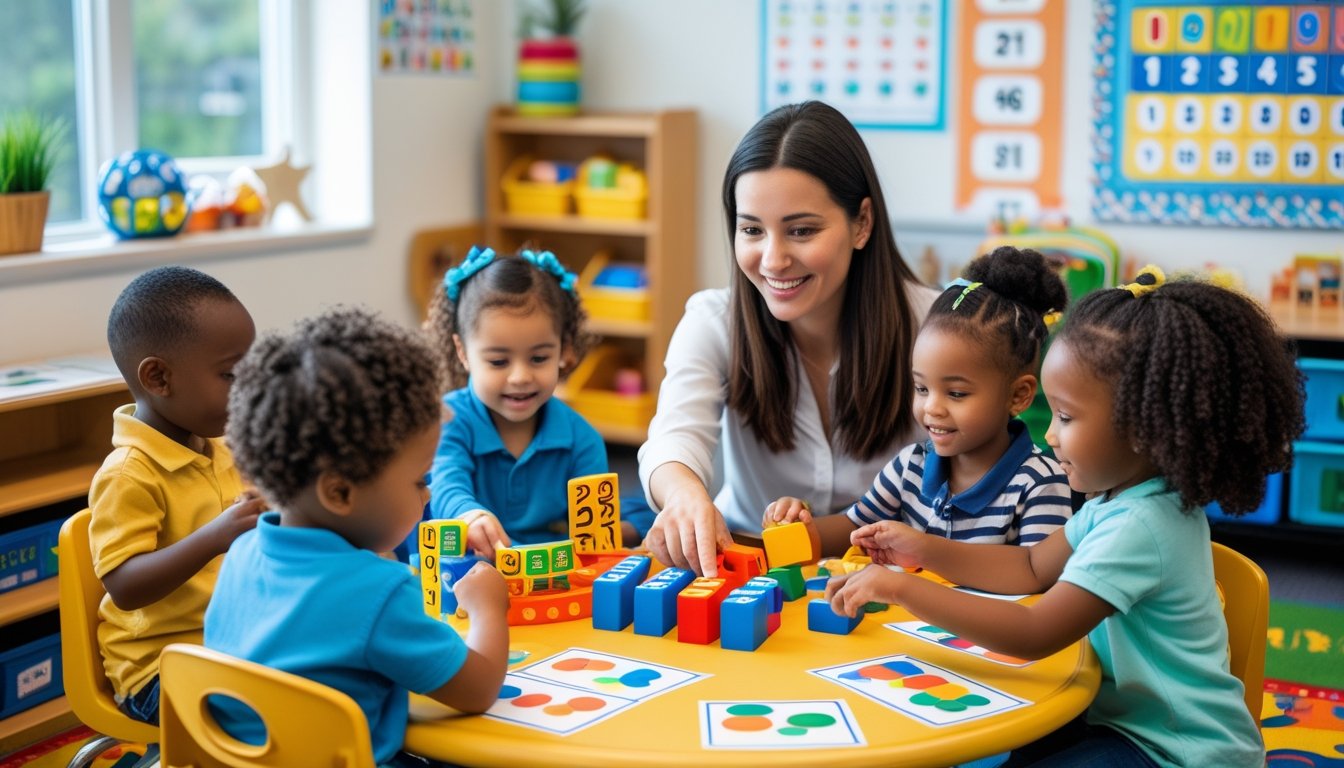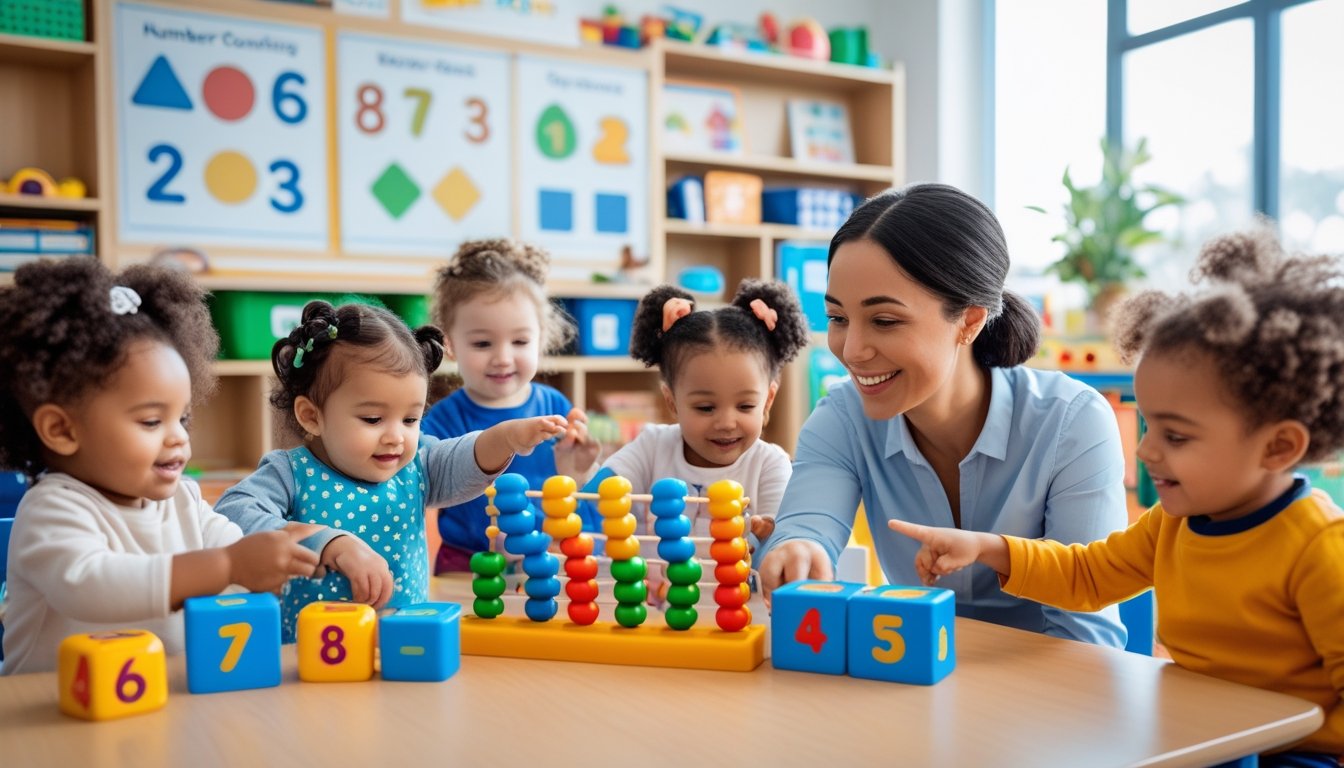Late updated: 08 Nov 2025 09:11
Written by:
Supporting Early Numeracy Skills In Young Children: Effective Strategies for Parents and Educators
Supporting the development of early numeracy skills in young children is a vital investment in their future. These foundational skills form the building blocks for later academic achievement and everyday problem-solving. By incorporating numbers and mathematical concepts into children's daily experiences, we can ignite their curiosity and position them for success in a world where numeracy is essential.

Engaging young children with activities such as counting, sorting, and exploring shapes can make learning fun and natural. Educators and parents can weave numeracy into play, making these concepts more tangible and meaningful. Guiding children as they recognise patterns and solve simple problems prepares them for more complex mathematical thinking as they grow.
Collaborative learning and interactive methods can significantly enhance a child's understanding and retention of numeracy concepts. Emphasising these strategies supports children's confidence and enthusiasm for mathematics. By fostering a supportive and interactive learning environment, we equip our children with the tools required to thrive academically and in their everyday lives.
Key Takeaways
- Early numeracy forms the foundation for future learning.
- Interactive learning supports numeracy development in children.
- Building confidence in numeracy enhances children's lifelong skills.
Core Early Numeracy Skills in Young Children
In early childhood, cultivating numeracy skills involves fostering an understanding of several fundamental concepts. These core skills lay the groundwork for more advanced mathematical learning. We focus on number sense, symbolic and non-symbolic representations, counting sequences, and basic arithmetic operations.
Fundamental Concepts in Early Numeracy
Young children develop a fundamental grasp of numeracy through engagement with basic mathematical concepts. Number skills, such as understanding quantities and recognising patterns, are vital. One-to-one correspondence is a key concept where children match one object with one number name or symbol, contributing to numeracy comprehension. The cardinality principle follows, highlighting that the final number name when counting represents the total number of items. These concepts create a solid foundation for future arithmetic learning, enabling children to connect abstract number concepts with tangible experiences. Our role is to ensure they are exposed to these principles in diverse, engaging contexts that promote cognitive development.
Development of Number Sense and Counting Sequence
Number sense involves an intuitive understanding of numbers and their relationships. It's a crucial element for early numeracy and encompasses skills like recognising, comparing, and ordering numbers. Counting sequences form the backbone of number sense. Preschool children learn these sequences by practising counting objects, reciting numbers aloud, and recognising amounts without counting exhaustively. Developing an ability to count both forwards and backwards enhances this skill. Our encouragement of daily counting activities supports the smooth transition from rote memorisation to true numerical understanding. Through engaging activities, children learn to apply number sequences in problem-solving situations.
Understanding Symbolic and Non-Symbolic Representations
Mastering both symbolic and non-symbolic representations is essential for young learners. Symbolic representations include written numerals and the use of number words, which aid in recognising and understanding numbers formally. These skills are fundamental in developing symbolic arithmetic abilities. In contrast, non-symbolic representations involve recognising quantities without explicit counting, like subitising small set sizes. Combining these two forms strengthens mathematical thinking, as children can visualise numbers in different formats. Our approach should integrate activities that promote both representations, ensuring children build flexible, in-depth numerical knowledge.
Acquiring Addition and Subtraction Skills
Addition and subtraction are foundational arithmetic operations that children begin to explore in early childhood. Initially, these skills develop through hands-on activities, where children manipulate objects to see the effects of adding or removing items. As their numerical knowledge and problem-solving skills grow, they begin to understand these operations symbolically. Reinforcing these skills involves interactive games that foster mathematical concepts, encouraging children to solve simple problems using counting and basic arithmetic. It's imperative to provide varied opportunities for young learners to practice addition and subtraction in familiar, engaging settings, facilitating a natural progression towards more complex maths tasks.
Effective Approaches to Supporting Early Numeracy

Early numeracy skills are foundational for children’s success in mathematics. From integrating numeracy into daily life to encouraging effective communication of mathematical ideas, there are several approaches that can enhance young children's mathematical development.
Integrating Numeracy into Daily Activities and Play
Incorporating numeracy into everyday activities is a powerful way to bolster mathematical learning. Children naturally engage in counting and number recognition when involved in daily routines. Activities such as setting the table can become lessons in counting and matching, while grocery shopping offers opportunities to explore weights and measures.
Play-based learning, where children use toys and games, enhances both spatial and numerical skills. Games that involve sorting, classifying, and sequencing promote pattern recognition. Regular exposure to these concepts within familiar activities strengthens their working memory and solidifies their understanding of mathematical relationships.
Utilising Manipulatives and Hands-On Strategies
Hands-on learning through the use of manipulatives plays a significant role in supporting early numeracy. Objects such as blocks, beads, or counters enable children to physically engage with mathematical concepts. By manipulating these items, they grasp abstract ideas like addition, subtraction, and even basic geometry.
These strategies engage tactile learning modes and assist in bridging concrete experiences with abstract ideas, crucial for mathematical development. For instance, building towers helps young learners connect number concepts with quantities. Using real-world objects encourages a deeper connection to mathematical ideas, fostering both retention and interest.
Encouraging Mathematical Language and Communication
Communicating about mathematics using language builds a strong foundation for later learning. Encouraging children to describe their thought processes when solving problems deepens their understanding. This practice not only enhances their linguistic skills but also aids in developing a logical approach to problem-solving.
We can introduce mathematical vocabulary early, such as terms related to position, size, and quantity. Engaging children in discussions about their activities, asking questions, and encouraging them to express their reasoning helps instil confidence. Language and communication are intertwined with mathematical development, reinforcing their learning and aiding in cognitive skills like logical reasoning and pattern recognition.
Frequently Asked Questions

We explore foundational numeracy concepts, how to encourage mathematical thinking in young children, and effective strategies for introducing counting and arithmetic. Our focus includes the role of play in learning these skills and assessing development.
What are the foundational numeracy concepts for preschool-aged children?
Preschool-aged children begin with recognising numbers, counting, understanding quantity, and grasping simple patterns. These foundational concepts set the stage for more complex mathematical thinking.
Learning through everyday experiences and guided play helps embed these skills naturally.
How can parents and educators encourage mathematical thinking in early childhood?
Engaging children through questions about quantities, shapes, and sizes in everyday situations fosters mathematical curiosity.
Offering diverse materials such as blocks, puzzles, and counting toys supports their exploration of mathematical relations and problem-solving.
What activities support the development of number sense in young children?
Activities that involve sorting, counting, and grouping objects are effective for developing number sense.
Games involving number matching, pattern recognition, and simple arithmetic tasks make learning engaging and relatable. Utilising household items or outdoor settings can diversify their experiences.
What is the role of play in learning early numeracy skills?
Play allows children to explore mathematical concepts in a context that is natural and enjoyable.
Through imaginative play, they experiment with counting, solving problems, and understanding spatial relationships, helping to deepen their comprehension of numeracy in a stress-free manner.
How can early years practitioners assess numeracy development?
Assessment can involve observing children during play, engaging them with simple questions, or using structured activities tailored to their level of understanding.
Using visual aids and hands-on tasks offers a clearer picture of their numeracy skills and progress.
What are effective strategies for introducing counting and basic arithmetic to toddlers?
Starting with songs, rhymes, and stories that include numbers makes counting relatable.
Introducing everyday counting opportunities, such as counting steps, snacks, or toys, helps solidify the concept. Incorporating hands-on activities with tangible objects creates a strong foundation for basic arithmetic.
